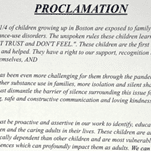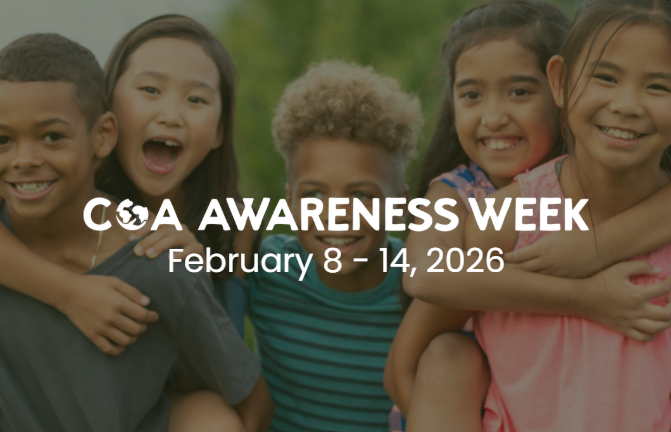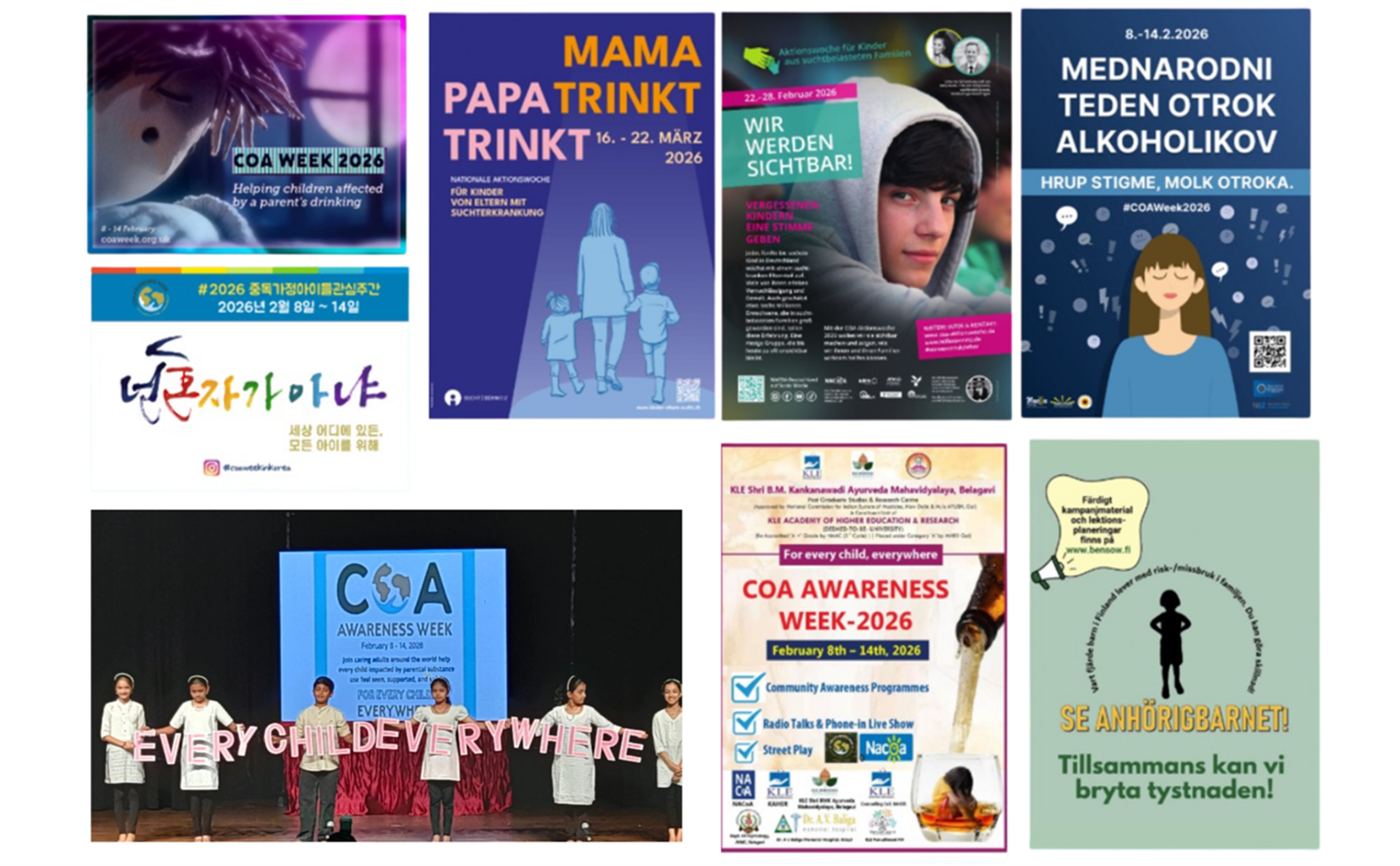
CFC #12020
Venmo @NacoaVoice4Children
CFC #12020
Venmo @NacoaVoice4Children

February 8 - 14, 2026


This international movement brings attention to the millions of children affected by parental addiction. While some can find a supportive adult who helps protect them from the worst, others suffer in isolation. They often believe it is their fault, and they are responsible to “fix” the person and save their families. All children deserve the hope and healing that can transform their lives.
During COA Awareness Week 2026, our global voices can create a wave of awareness and hope for every child, everywhere.

Share the COA Awareness Week 2026 flyer to help raise awareness about this important campaign
“Now I know it’s not my fault. I didn’t cause my mom’s drinking, and I can still be okay.”
Ten year old child
Ways to Get Involved


“Despite my father’s drinking, I’ve been blessed with the help of many caring adults who have made a difference in my life.”
Teen whose father died from alcohol use disorder
Consider sharing these with families and other caring adults in the community during COA Awareness Week, and all year long!
COA Statistics: Hope and Healing for Children Impacted by SUDs
Tools for Early Childhood Professionals
Language When Talking to Children
Abstinence, Sobriety, and Recovery
Children Learn What They Live: The Recovery Version
NACoA’s Parents Guide: Talking to Kids and Teens About Alcohol and Other Substances
The Significance Of COA Awareness Week: From an Adult Child Who’s Been There